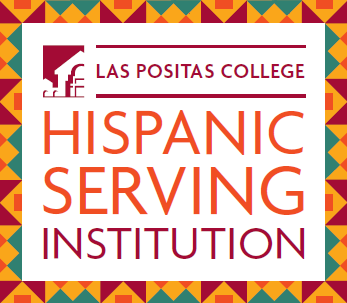HSI Grant Activities
Implementation Timeline
Name of Program: HSI Title V Grant
Report Period: 2024 - 2029
Project Activities
- Establish Student Success Teams (SSTs): Form teams to support Hispanic/Latinx and low-income students.
- Student Recruitment: Identify and recruit students from high schools, the community, and current Las Positas College (LPC) enrollees into the Guided Pathways project.
- Pathway Identification: Students begin using Career Coach and Program Mapper to choose academic and career pathways.
- Develop Student Education Plans (SEPs): Implement comprehensive student education plans (CSEP) through DegreeWorks for Hispanic/Latinx and low-income students.
- Guided Pathways Communication Design: Establish the communication system to ensure students receive timely, proactive support throughout their pathway.
- Initial Student Engagement Surveys: Conduct surveys to gather data on student engagement, which will inform further improvements.
- Data Reporting: Monitor and report student credit accumulation and academic progress.
- SSTs Continue Support: SSTs will provide ongoing academic, personal, and financial support to students, focusing on early intervention strategies.
- Professional Development: Continued training for SST members to enhance their advising and technological skills, focusing on new tools like DegreeWorks and Career Coach.
- SEP Increase: By the end of Fall 2025, achieve a 40% increase in the number of Hispanic/Latinx and low-income first time, every college (FTEIC) students with completed comprehensive SEPs.
- Student Communication: Strengthen communication strategies using mobile platforms and ensure targeted communications reach the students.
- Data Dashboard: Enhance the use of data dashboards to track student progress in real time, providing timely interventions for at-risk students.
- Institutionalization of Technology and Processes: Embed key technology platforms (DegreeWorks, Career Coach, Program Mapper) into daytoday operations, making them an integral part of the student experience.
- Student-Centered Practices: Reinforce student-centered practices across the college through evaluations and performance reviews, ensuring that staff adopt and apply the Guided Pathways framework.
- SEP Increase: By Fall 2026, achieve a 60% increase in SEP completion among Hispanic/Latinx and low-income students.
- Monitoring Key Milestones: Focus on helping students meet essential academic milestones, including credit accumulation and readiness for graduation or transfer.
- Data Driven Interventions: Continuous data analysis to improve retention and completion rates.
- Refining Graduation and Transfer Readiness: SSTs will work closely with students to ensure they meet critical academic milestones, including degree completion, transfer readiness, and career exploration.
- Student Success Data: Analyze student success and satisfaction through ongoing data collection and surveys, refining processes based on the insights gathered.
- Graduation and Job Readiness Reports: By the end of Year 4, the project will demonstrate improvements in graduation rates, job readiness rates, and transfer rates for Hispanic/Latinx and low-income students.
- Institution-Wide Improvements: Continue refining and institutionalizing best practices across the college, ensuring that the Guided Pathways framework is fully integrated into the campus culture.
- Final Reports and Demonstrations: Submit final reports to the California Community Colleges Chancellor’s Office for the Guided Pathways statewide demonstration project, showcasing LPC’s achievements.
- Graduation and Transfer Data: Highlight improvements in graduation, transfer readiness, and job placement rates for Hispanic/Latinx and low income students.
- Institutionalization of the Project: Ensure that all grant activities, including student-centered practices and technology usage, are institutionalized and sustained beyond the grant period.
- Demonstrating Success: Provide comprehensive reports and success stories that illustrate the project's positive impact. These can be shared with other institutions and used to develop future grants.

